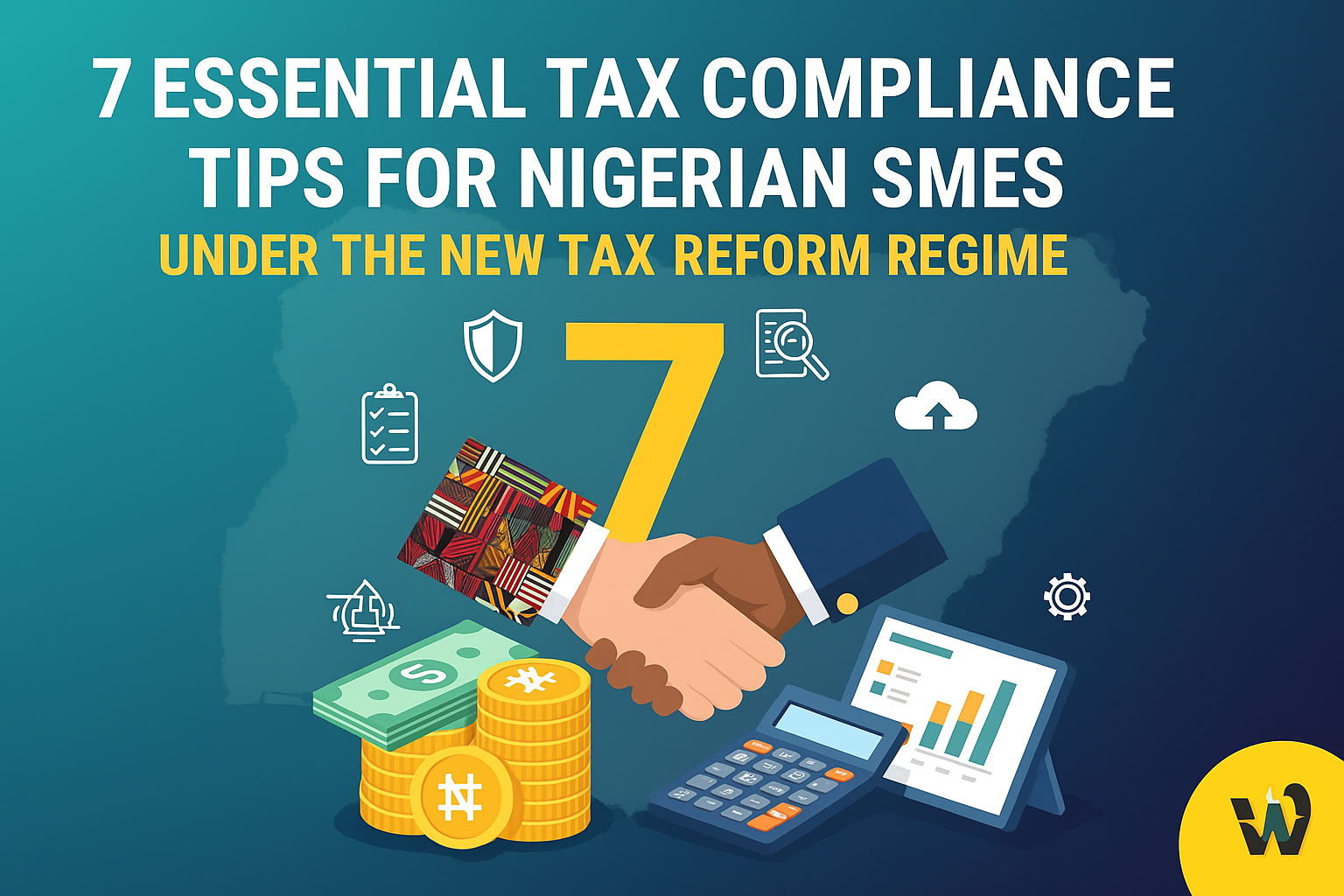7 Essential Tax Compliance Tips for Nigerian SMEs Under the New Tax Reform Regime

As Nigeria enters a new era of tax reforms, many business owners are asking the same question: how do I stay compliant without losing sleep or money?
Whether you run a tech startup, a private school, or a real estate company, understanding how to manage your taxes effectively in 2026 and beyond could determine whether your business thrives or struggles under penalties.
At Taisha Associates, we’ve worked with hundreds of SMEs across Nigeria for over 20 years—helping them navigate complex tax regulations with ease. In this post, we’ll break down practical tax compliance tips every Nigerian business owner should know in this new reform regime.
Why Tax Compliance Matters More Than Ever
Nigeria’s tax environment is evolving fast. From new digital service taxes to revised VAT thresholds and electronic filing systems, staying compliant is no longer a matter of choice—it’s a necessity.
Being tax compliant doesn’t just keep you out of trouble with the FIRS or state tax authorities. It also:
- Builds trust with investors, banks, and customers
- Makes it easier to access funding
- Enhances your business credibility
- Helps you avoid penalties and unnecessary cash flow issues
In short, compliance gives you peace of mind and a solid foundation for growth.
1. Keep Proper Financial Records
Every tax-efficient business begins with accurate record-keeping.
Ensure your income, expenses, invoices, payroll, and bank transactions are properly documented and stored. Whether you use cloud accounting software or work with a professional accountant, proper records serve as proof during tax audits.
Pro Tip:
No records = No deductions = Higher taxes.
2. Understand Your Tax Obligations
Not all businesses are taxed the same way. Knowing which taxes apply to your business helps you pay correctly and take advantage of possible exemptions.
For example:
- Tech startups and e-commerce firms pay Company Income Tax and Digital VAT
- Schools and clinics may enjoy certain educational or health sector exemptions
- Agribusinesses often qualify for agricultural tax incentives
Don’t just pay taxes—pay the right ones. A professional accountant can help you identify your specific obligations.
3. File Your Tax Returns On Time
Late filing is one of the most common and costly mistakes SMEs make.
Both the FIRS and state tax authorities now operate automated systems that instantly detect delays. Even a one-day delay can attract penalties.
Set calendar reminders or hire a professional to help you track and meet VAT, PAYE, and annual return deadlines.
4. Separate Business and Personal Finances
Mixing business and personal transactions is a recipe for confusion—both for your books and the tax authorities.
Open a dedicated business account, and ensure all transactions go through it. Then, pay yourself a salary or owner’s draw separately. This keeps your finances clean, audit-ready, and transparent.
5. Take Advantage of Tax Incentives
The Nigerian tax system offers several incentives and reliefs for qualifying businesses.
If you operate in sectors like agriculture, manufacturing, export, or education, you may be eligible for tax holidays or reduced tax rates.
A tax professional can help you identify and claim these benefits—potentially saving your business millions every year.
6. Automate and Digitize Your Accounting
Tax compliance is becoming increasingly digital, and your accounting should too.
Use accounting tools like Odoo ERP, QuickBooks, or Zoho Books to:
- Record transactions automatically
- Generate VAT and tax reports
- Prepare financial statements with ease
Automation reduces errors, improves efficiency, and keeps you aligned with the government’s digital tax systems.
7. Work with a Qualified Accountant
Tax laws change every year, and keeping up alone can be overwhelming.
Working with a qualified accountant ensures your business remains compliant, your returns are filed correctly, and your deductible expenses are maximized—saving you both time and money.
Let’s recap the 7 pillars of stress-free tax compliance:
- Keep proper records
- Know your tax obligations
- File returns on time
- Separate personal and business finances
- Use tax incentives
- Automate your accounting
- Get expert support
At Taisha Associates, we help Nigerian SMEs stay compliant, profitable, and future-ready. From tax filing to financial system setup, we make compliance simple—so you can focus on growing your business.
Book your free tax readiness consultation today at www.taishaaccountingservices.com.ng.
Because in this new era of reform, compliance isn’t just smart—it’s survival.

Leave a Reply